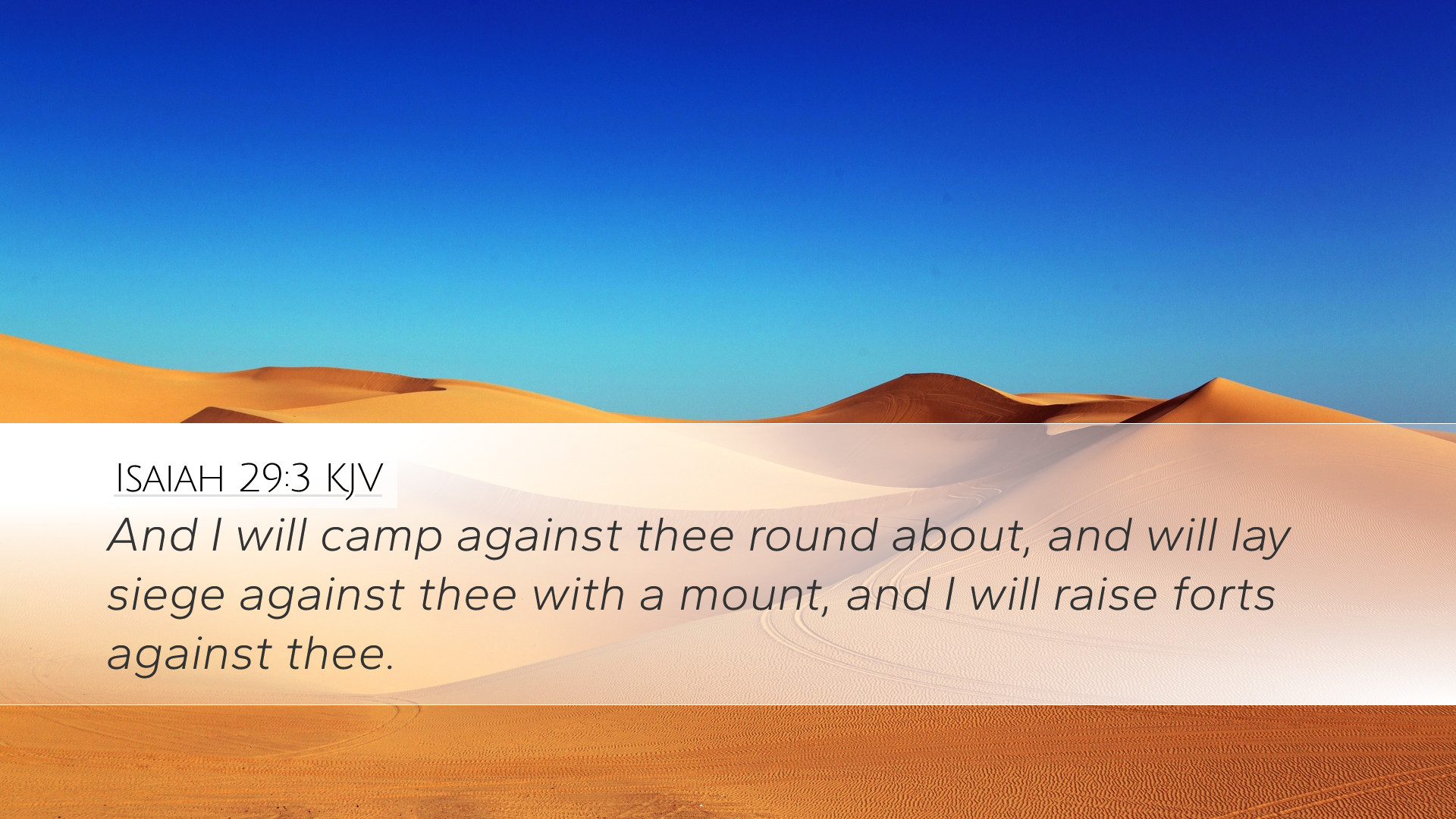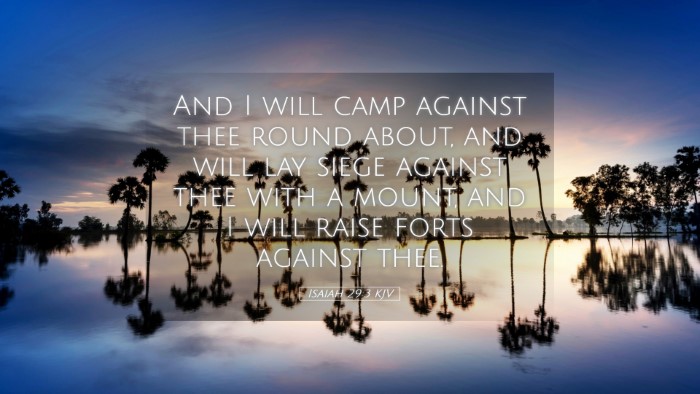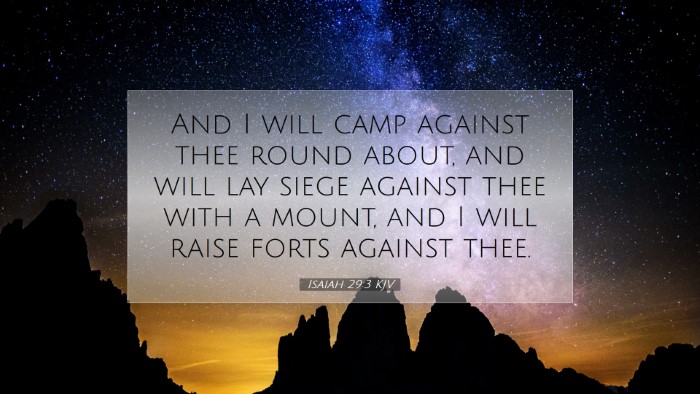Commentary on Isaiah 29:3
Verse Reference: Isaiah 29:3
"And I will camp against thee round about, and will lay siege against thee with a mount, and I will raise forts against thee."
Introduction
Isaiah 29:3 is one of the passages that illustrate God's sovereignty over nations and His judgment against Jerusalem for its infidelity and unfaithfulness. The imagery of a siege conveys the seriousness of the divine message. Below, insights from various public domain commentaries are combined to give a fuller understanding of this verse.
Contextual Analysis
The context of Isaiah 29 reveals the prophet’s concern for Jerusalem, particularly regarding the people's spiritual state. Understanding this verse requires recognizing the historical backdrop of Judah’s idolatry, societal injustices, and reliance on foreign powers instead of trusting in God. Isaiah proclaims impending judgment as a warning and a message of hope for eventual restoration.
Historical Setting
-
Matthew Henry: Henry emphasizes the dire spiritual condition of Jerusalem, suggesting that the city became complacent in its own strength, relying on human alliances rather than the providence of God.
-
Albert Barnes: Barnes points out that this siege was meant to bring about repentance, as the impending judgment was not only a punishment but also a call to return to faithfulness to God.
-
Adam Clarke: Clarke similarly notes that God’s promise to "camp" around Jerusalem indicates His active involvement in the affairs of the city, highlighting that divine judgment is just as real as divine love.
Theological Implications
This verse is densely packed with theological implications regarding God’s nature and His relationship to His people.
Divine Sovereignty and Judgement
-
Matthew Henry: Henry interprets the siege as a metaphor for divine judgment, where God puts pressure on His people to awaken them to their sinfulness.
-
Albert Barnes: Barnes interprets the "camp" as God's providential care, alluding to how God can just as easily protect as He can judge. This duality emphasizes God's authority over the nations.
-
Adam Clarke: Clarke explains that figurative language is used to portray God’s omnipotence, showing that despite human attempts to fortify themselves against God, they cannot escape His judgment.
Call to Repentance
The language of siege serves both as a warning and an agency for change. God's desire for His people is not final judgment but repentance.
-
Matthew Henry: He views the siege as a necessary step to humble Jerusalem, underscoring that through divine chastisement, the people can be directed back to God.
-
Albert Barnes: Barnes stresses that God's warnings through such actions aim to make people aware of their spiritual decline and lead them to seek Him.
-
Adam Clarke: Clarke reinforces the notion that while this verse depicts judgment, it also represents God’s longing for His people to turn back to Him, demonstrating His enduring love.
Practical Applications
The warnings contained in this verse extend beyond the immediate historical context. For pastors, students, and theologians, here are some practical applications:
Reflection on Spiritual Vigilance
-
Leaders should encourage believers to remain vigilant against complacency in their faith.
-
Church communities are urged to cultivate a culture of seeking God's presence and guidance in all matters, rather than relying solely on human wisdom.
Understanding God’s Discipline
-
Emphasizing that God’s discipline can lead to growth, it is essential for believers to view challenges and adversities as opportunities for spiritual awakening.
-
Encouraging congregations to embrace hardships as part of their faith journey can allow for deeper reliance on God and foster communal resilience.
Conclusion
Isaiah 29:3 serves as a poignant reminder of God's righteous judgment, grounded in His love and desire for restoration. The interpretations drawn from Matthew Henry, Albert Barnes, and Adam Clarke offer rich insights into the multifaceted nature of this passage. As contemporary readers, particularly pastors and scholars, reflect upon this text, they are challenged to discern God’s ongoing work and call in their lives, encouraging a posture of humility and faithfulness to the divine will.


